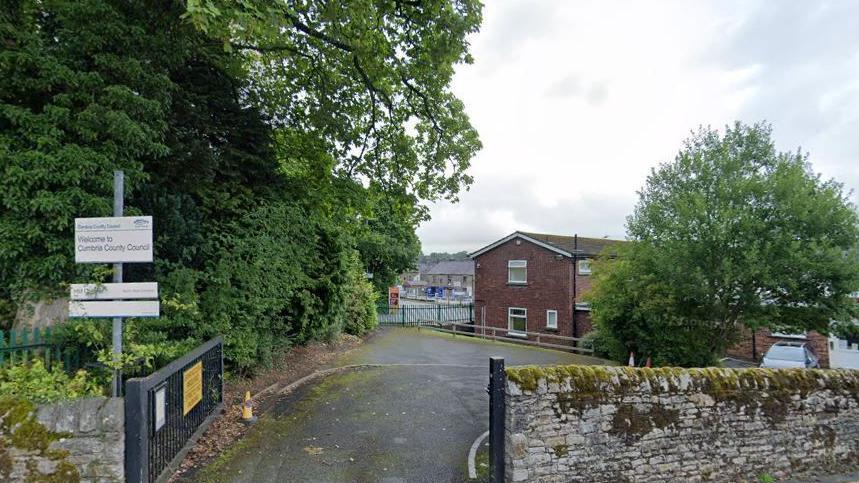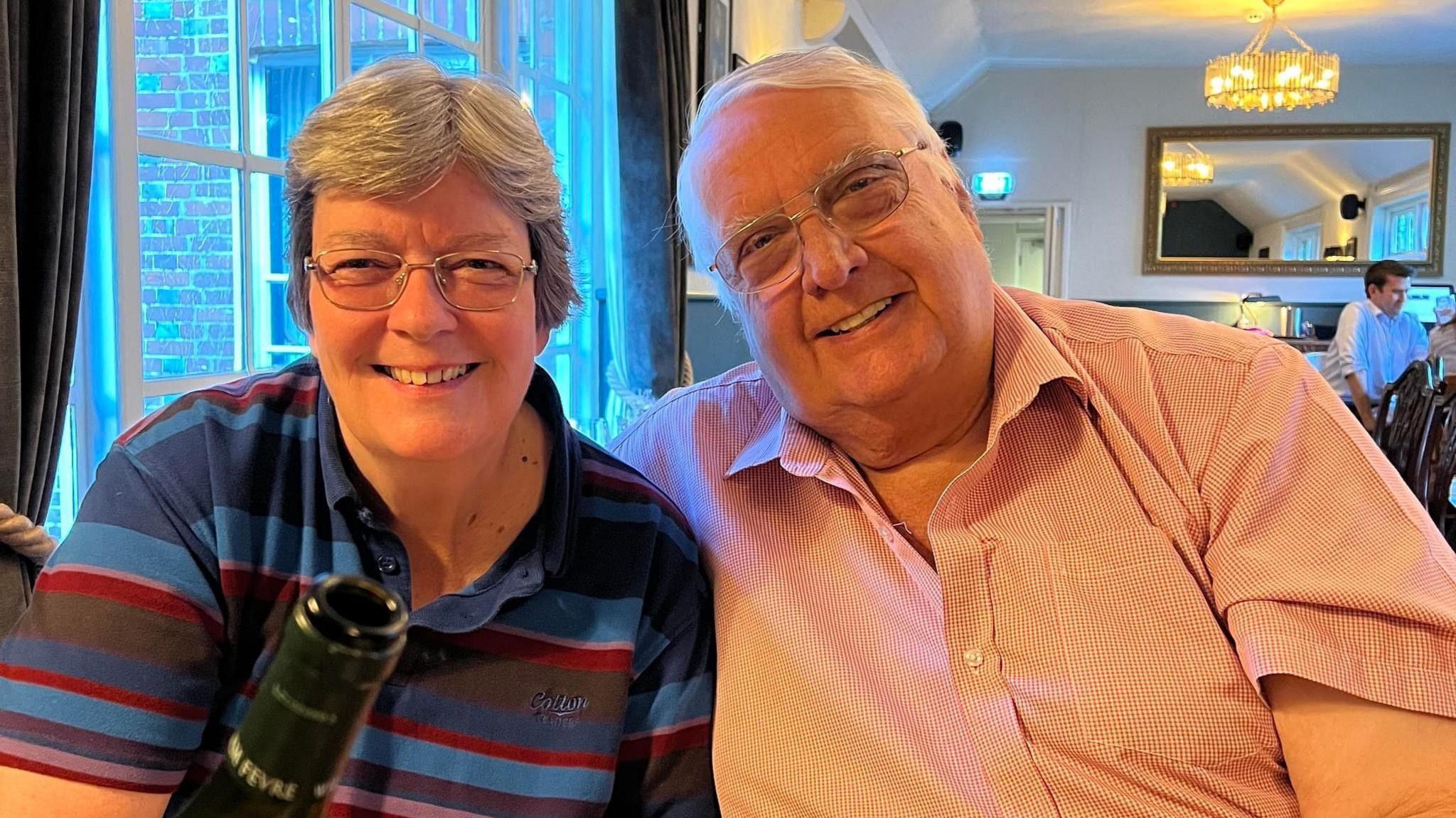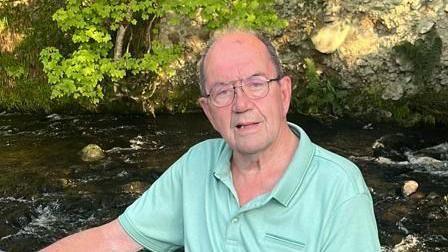'Long delays' contributed to patient's death

Coroner Nicholas Shaw said Michael Huggon was exhausted when he declined admission to hospital
- Published
A man's life could have been saved had he not been "exhausted" by a seven-hour wait for a doctor's visit, a coroner has said.
Michael Huggon had profound anaemia on the day he called his GP at Carlisle Healthcare for a home visit, before being referred to Cumbria Health four hours later.
Dr Nicholas Shaw, assistant coroner for Cumbria, said the 75-year-old was "beyond caring" when he was told he needed to be admitted to hospital seven hours after his initial call.
A Cumbria Health spokesman said it acknowledged the coroner's conclusion. Carlisle Healthcare was approached for comment.
A prevention of future deaths report - a process used by coroners to flag systemic issues that emerge from inquests - was published by Dr Shaw this week, following Mr Huggon's inquest last month.
Too late
Dr Shaw said Mr Huggon's health had been declining after a stroke nine months before his death on 7 February.
The day before he died, his wife rang his GP at 14:15 GMT to request a home visit.
The practice called the couple back at about 18:05 to say that it was too late for the visit and Mr Huggon would have to call 111 after 18:30.
When they called, an automated voice informed them there would be a 40-minute wait.
Initially the 111 operator said an ambulance would be sent to Mr Huggon, but shortly after Cumbria Health said there would be another call to decide if the ambulance was needed.
The coroner said this call was prompt and a decision was made that a doctor would visit.
Dr Shaw said: "The duty doctor arrived at about 21:00 and immediately saw that Michael was extremely anaemic and required emergency admission to hospital -however despite repeated advice he declined and was deemed to have capacity to do so."
He was told a nurse would visit the next day to check his blood, however Mr Huggon collapsed shortly after midnight and attempts to resuscitate him failed.
'He was exhausted'
Dr Shaw said the process had been "slow and inefficient" and the response from Carlisle Healthcare to a request for urgent help was "inadequate"
He added, however, that Cumbria Health's response had been timely.
Dr Shaw said that had Mr Huggon been dealt with promptly he could have survived.
He said: "I suspect Michael was exhausted and almost beyond caring when he declined admission in the evening, but feel it is most likely that had he been seen and admitted to hospital earlier he could have received a blood transfusion and would not have died."
The coroner concluded Mr Huggon died of natural causes following a cardiac arrest.
He said he was concerned future deaths would occur if urgent requests were not dealt with more promptly by GPs.
"If a practice cannot deal with its workload, a rapid and secure handover process [should be] put in place. I am also concerned that referral to 111 will continue to bring delays and place undue pressure on that service."
A spokesman for Cumbria Health said it worked with GPs to ensure processes were "as robust as possible".
"We would like to give assurances that we have well established systems and processes in place to assist GP practices who need support prior to our service opening at [18:30]."
Follow BBC Cumbria on X (formerly Twitter), external, Facebook, external and Instagram, external. Send your story ideas to northeastandcumbria@bbc.co.uk.
- Published1 July 2024

- Published13 February 2024
